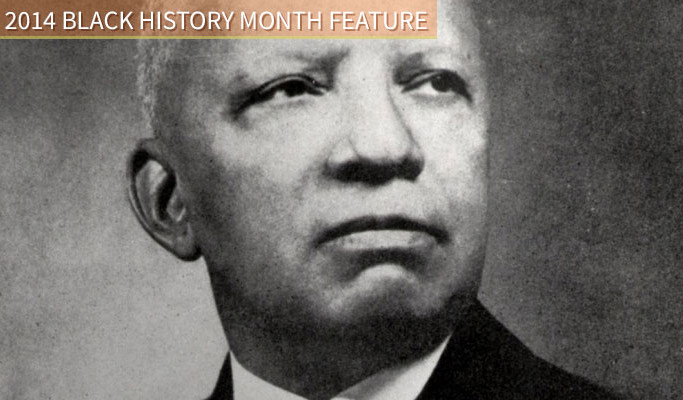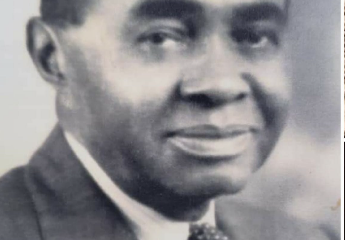Culture
Remembering Carter G. Woodson, Father of Black History Month

For the next 28 days, we will celebrate African American successes, inventions, politicians and other well-known women and men who have helped shape and enhance both our culture and community. To celebrate the first week of February, we wanted to highlight Carter G. Woodson who was “The Father of Black History.”
About Carter G. Woodson
Most of us are familiar with Frederick Douglas, Martin Luther King Jr., Rosa Parks and other notable people who have shaped the African-American community and black progress in the United States, but an important figure we sometimes forget to celebrate is Carter G. Woodson.
“His gift to America was Negro History week,” said Dr. Darry Scott, who is a board member for the Association for the Study of African American Life and History (ASALH), an organization founded by Woodson in 1915. “To African Americans his gift was appreciation for the importance and power of scholarship.”
Carter G. Woodson was a scholar, historian, author, son of former slaves and the second African American to receive his PhD at Harvard College. According to asalh.org, Woodson “understood how important getting a proper education was when striving to secure and make the most out of one’s own divine right to freedom.”
Scott described Woodson as “courageous, committed and determined” because he strove to promote and encourage the success of blacks. Asalh.org also reported that Woodson established the Journal of Negro History, the Negro History Bulletin and more significantly Negro History week, which would eventually develop into a full month celebration.
“By creating Negro history week he was able to spread that celebration of two days to a whole week of focus and transform American society,” said Scott who is also a professor at Howard University
Black History Month: Transitioning the Focus from a Great Man to a Great Race
Scott mentioned that many historians believe that Woodson chose the month of February as Black History Month because both Frederick Douglas and Abraham Lincoln’s birthdays fell during this time.
“What Woodson intended to do was go beyond the celebration of two people who have been important in black history – two great individuals – to celebrating the history of a people and of a race,” said Scott.
According to asalh.org, the making of Black History Month began in Chicago in 1915 when Woodson traveled from D.C. to “see exhibits highlighting the progress their people had made since the destruction of slavery.” The “Origins of Black History” article also states that his trip prompted him to create the ASALH and Negro Achievement week in 1924.
“His belief was there needs to be a rethinking among people of African descent of their roles in history and that people had understood what they had accomplished historically,” said Scott.
Scott describes Woodson as a “promoter of social history” and while many recognize his scholarly contributions, his greatest achievement is seen on our yearly calendars every year: preserving and promoting both black history and people.
“Black history month is probably the longest running celebration in American history… it’s an institutionalized celebration of American history,” said Scott. “He built on something that was already there and transformed it.”

-

 Black History5 months ago
Black History5 months agoThe untold story of a Black woman who founded an Alabama hospital during Jim Crow
-

 Featured9 months ago
Featured9 months ago‘No Closure’ In Town Where Five Black Residents Were Either Murdered, Died Suspiciously Or Are Missing
-

 Black History10 months ago
Black History10 months agoBlack History Lost and Found: New Research Pieces Together the Life of Prominent Texas Surgeon and Activist
-

 Featured9 months ago
Featured9 months agoFounder of “The Folding Chair” Podcast Calls Montgomery’s Brawl ‘Karma’
-

 Featured9 months ago
Featured9 months agoThousands ‘Live Their Dream’ During National Black Business Month
-

 Featured11 months ago
Featured11 months agoJuneteenth And ‘246 Years Of Free Labor’ Are Key To Conversations About Reparations

